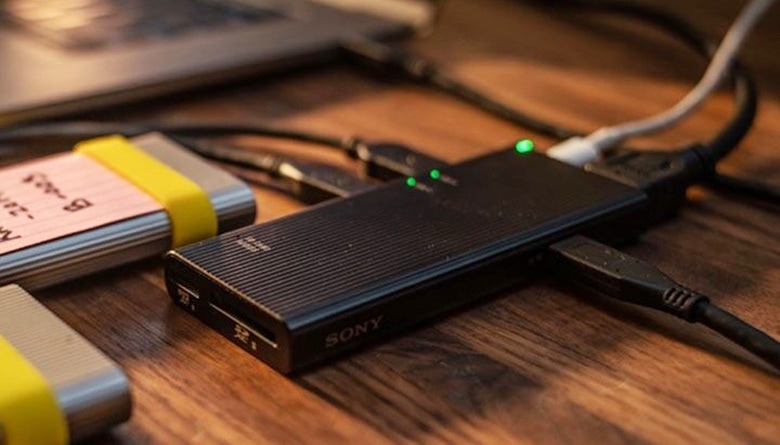- Download Teac Dvd Driver
- Usb Card Reader Software
- Teac Usb Card Reader Driver For Mac Windows 7
- Usb Card Driver
- Teac Usb Floppy Driver Download
- Teac Usb Card Reader Driver For Mac 7
- Teac Usb Driver
Mac USB Drivers update for A-H01 / UD-H01 Press Release dated: 27 Nov 2012 Updated Mac USB drivers for USB audio with A-H01 Stereo Amplifier and UD-H01. TEAC Introduces the AD-850 Cassette/CD Multi-function Player Bridging the best of old and new, the TEAC AD-850 is designed to deliver inspiring analog performance for today’s digital world.

Driver Download

Smart Card Reader Driver for all models which base on the AU9540/AU9580 IC Solution, this series card reader Without SD Card Slot. Check your Smart Card Reader Slot before downloading the Driver, make sure download the correct version driver.

Multifunctional Smart Card Reader Driver for all models which base on the Realtek RT5169 IC Solution, this series card reader Build-in SD Card Slot. Check your Smart Card Reader Slot before downloading the Driver, make sure download the correct version driver.
Multifunctional Smart Card Reader Driver for all models which base on the Realtek RT5169 IC Solution, this series card reader build-in SD Card slots. Check your Smart Card Reader Slot before downloading the Driver, make sure download the correct version driver.
Smart Card Reader Driver for all models which base on the AU9540/AU9580 IC Solution, this series card reader without SD Card Slot. Check your Smart Card Reader Slot before downloading the Driver, make sure download the correct version driver.
Download Teac Dvd Driver
Usb Card Reader Software
Teac Usb Card Reader Driver For Mac Windows 7
Usb Card Driver
USB port types and names
USB (Universal Serial Bus) is an industry standard for connecting computers and other devices. It's available with many types of ports, and each type has a unique shape. On Mac, USB is available with these ports, depending on your Mac model:
USB-A
Type USB-A ports are commonly called USB, USB 2, or USB 3 ports, depending on the USB specification they support. They aren't reversible, so a USB-A connector plugs into the port only when oriented correctly.
USB-C
Type USB-C ports are available on Mac as standard USB-C ports, Thunderbolt 3 ports, and Thunderbolt / USB 4 ports. They all look the same, and the connector plugs into the port in either orientation.
Learn more about identifying the ports on your Mac, as well as the adapters and cables you can use to connect older devices to type USB-C ports.
USB specifications
USB specifications are important primarily when you want the most speed and power for your USB device, or your device needs more power or is using too much power. Every USB port supports a particular USB specification, which determines the port's maximum>USB specifications on MacData transferPower deliveryUSB 4Up to 10 GbpsUp to 15W at 5VUSB 3.1 Gen 2
Also known as USB 3.2 Gen 2
Up to 10 GbpsUp to 15W at 5VUSB 3.1 Gen 1
Also known as USB 3.2 Gen 1 or USB 3
Up to 5 GbpsUp to 900 mA at 5VUSB 2.0
Up to 480 MbpsUp to 500 mA at 5VUSB 1.1
Up to 12 MbpsUp to 500 mA at 5V
Teac Usb Floppy Driver Download
To learn which specification is supported by a type USB-A or type USB-C port on your Mac model:
Teac Usb Card Reader Driver For Mac 7
- Choose Apple menu > About This Mac, click Support, then click Specifications.
- Check the System Information app for more details, including about USB devices connected to USB ports on your Mac. Select USB in the sidebar, then select a USB bus on the right.
Get the best performance from your USB devices
USB specifications all work with each other, but speed and power are limited by the cable or device that uses the earliest specification. For example, if you connect a USB 3 device to USB 2 port, your device is limited to USB 2 speeds, and it can't draw more power from the port than can be delivered over USB 2. In other words, to get the best performance, make sure that the USB port on your Mac and the USB cable to your device meet or exceed the USB specification of the device itself.
Teac Usb Driver
If your Mac doesn't recognize a USB device after you plug it into your Mac:
- Check all connections: Unplug the device from your Mac, then plug it back in, and make sure that all cables and adapters are securely connected at both ends. Test with another cable or adapter, if available.
- Plug the device directly into your Mac instead of a USB hub or other device, and if necessary test with a different USB port on your Mac or device.
- Some devices need their own software, such as drivers or firmware. Others work without additional software. Check with the maker of your device, and install all available Apple software updates as well.
- If your device came with an AC power adapter, use it. Some devices can be powered by the USB port on your Mac. Others need more power than your Mac can provide.
- Restart your Mac.
Learn more
- USB 3 devices can create wireless interference that affects Wi-Fi and Bluetooth devices. Learn how to resolve Wi-Fi and Bluetooth issues caused by wireless interference.
- Mac notebook computers with USB-C, Thunderbolt 3, or Thunderbolt / USB 4 can charge over that port using a compatible USB-C power adapter and cable.